10 Sustainable Cooking Utensils You Need for a Greener Kitchen
In today’s world, our choices in the kitchen can have a lasting impact, not only on our health but also on the environment. As we whip up our favourite meals, have you ever stopped to think about the materials your utensils are made from? For many years, I didn’t give it much thought. However, after some eye-opening experiences and research, I realised the importance of choosing sustainable cooking utensils. This guide will take you through ten essential eco-friendly cooking utensils, backed by expert insights and personal stories that illustrate why these choices matter.
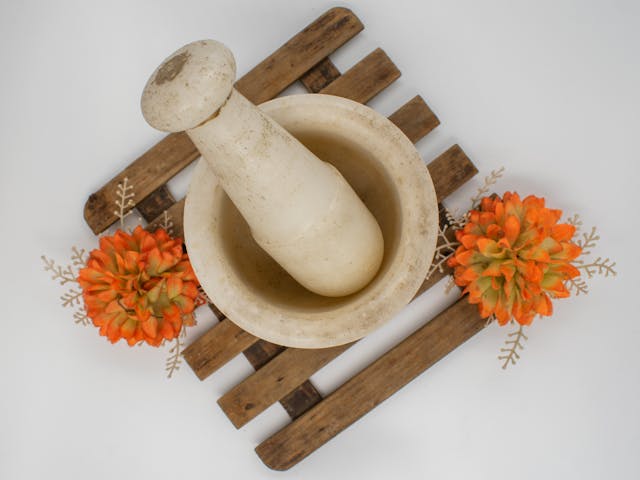
In This Article
- 1. Carbon Steel Cookware
- 2. Bamboo Utensils
- 3. Glass Food Storage Containers
- 4. Beeswax Food Wraps
- 5. Stainless Steel Cookware
- 6. Natural Fibre Dish Towels
- 7. Recycled Plastic Utensils
- 8. Wooden Cutting Boards
- 9. Silicone Baking Mats
- 10. Recycled Glass Beverage Containers
My Journey to a Sustainable Kitchen: A Personal Awakening
My journey toward a greener kitchen began quite unexpectedly. One summer, I was preparing a family barbecue, excited to impress my guests with some grilled delights. As I reached for my trusty non-stick frying pan, I noticed the surface was scratched. It made me pause. What was I really cooking with? I had read stories about Teflon coatings releasing harmful chemicals, especially when scratched. Suddenly, the thought of feeding my loved ones from that pan felt unsettling.
That moment sparked my curiosity. I began researching the impact of kitchenware on health and the environment, discovering a world of sustainable options. Each utensil I switched out not only contributed to a healthier kitchen but also reduced my environmental footprint.
1. Carbon Steel Cookware
When it comes to sustainable cookware, carbon steel is often overshadowed by its more famous cousin, cast iron. However, its lightweight nature and excellent heat retention make it a fantastic choice for any kitchen.
Why It’s Sustainable:
Carbon steel is made from a blend of iron and carbon, making it incredibly durable. Unlike Teflon-coated pans, which can release toxic fumes, carbon steel pans are chemical-free. They require seasoning, which builds a natural non-stick surface over time, further eliminating the need for synthetic coatings. According to The Kitchn, properly seasoned carbon steel pans can last a lifetime and even improve with age.
Learn more: 13 Best Zero-Waste Kitchen Products: A Complete Guide to a Sustainable Kitchen
Personal Experience:
After investing in my first carbon steel skillet, I was intimidated by the seasoning process. However, I followed a YouTube tutorial and was pleasantly surprised by the results. I can now prepare everything from delicate crepes to hearty stir-fries without worry. My family has even remarked on the improved flavour of my dishes!
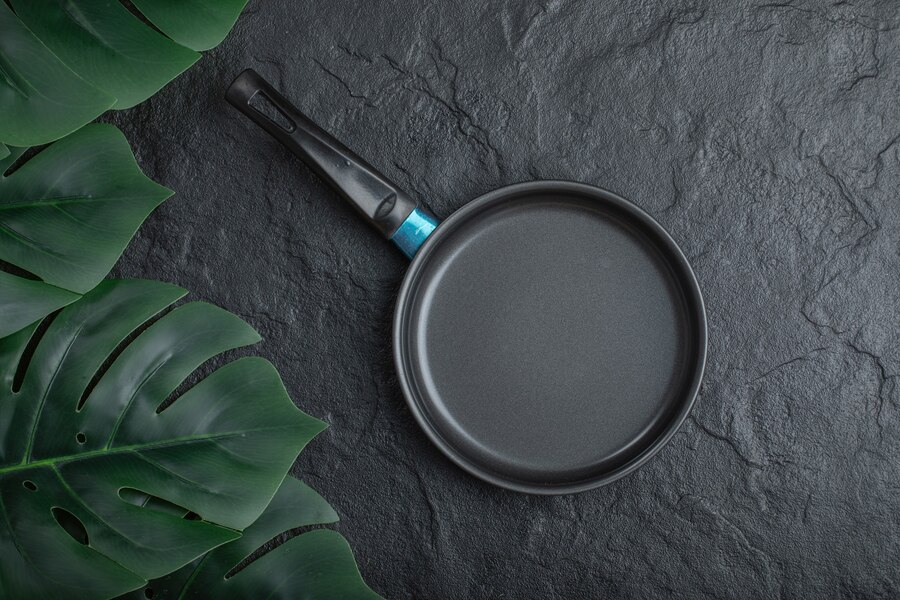
2. Bamboo Utensils
Bamboo utensils have become a popular choice for eco-conscious cooks. They are not only sustainable but also incredibly stylish and functional.
Why It’s Sustainable:
Bamboo is one of the fastest-growing plants on the planet, requiring minimal resources to thrive. It’s biodegradable, so when it eventually wears out, it won’t linger in landfills. Additionally, bamboo is naturally antibacterial, making it a hygienic choice for food preparation.
Expert Insight:
“Bamboo utensils are durable, lightweight, and easy to clean,” says Chef Maria Lopez, a culinary expert focused on sustainable cooking. “They’re a fantastic alternative to plastic that not only benefits the environment but also enhances the aesthetic of your kitchen.”
Personal Tip:
After switching to bamboo spoons and spatulas, I noticed they don’t scratch my pots and pans, unlike their metal counterparts. Plus, they add a warm, rustic charm to my kitchen decor!
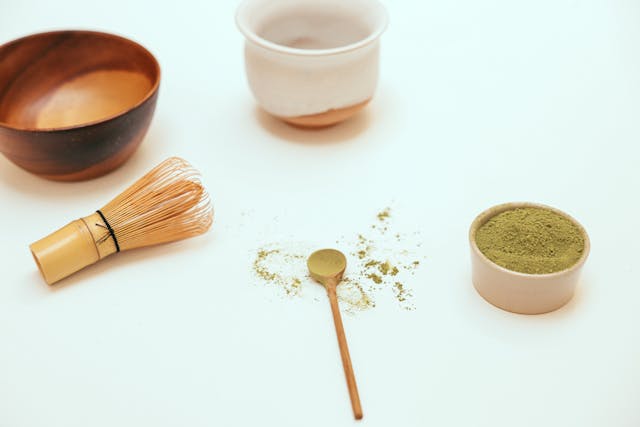
3. Glass Food Storage Containers
When it comes to food storage, glass containers are far superior to plastic. They’re a safe choice for both storing leftovers and meal prepping.
Why It’s Sustainable:
Glass is made from natural materials and is infinitely recyclable. It doesn’t absorb odours or stains, which means your food will taste as fresh as it should. Unlike plastic, glass doesn’t leach harmful chemicals, especially when heated.
Case Study:
A study published by the Environmental Protection Agency (EPA) found that glass containers significantly reduce the risk of chemical leaching into food compared to plastic options. Switching to glass storage has helped me feel more confident about what my family is eating.
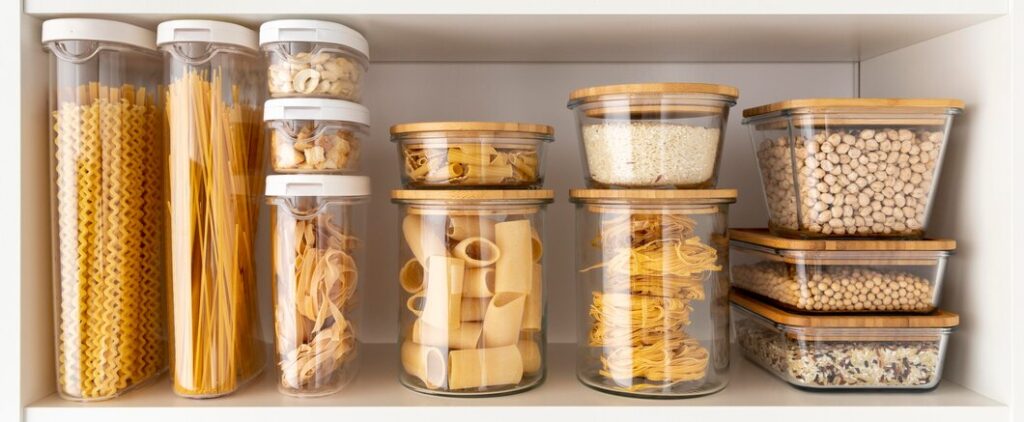
4. Beeswax Food Wraps
Plastic wrap has been a staple in kitchens for decades, but its single-use nature poses a significant environmental issue. Beeswax wraps are a fantastic, reusable alternative.
Why It’s Sustainable:
Made from organic cotton infused with beeswax, these wraps are breathable and allow your food to stay fresh while minimising waste. They’re washable and can last for over a year with proper care.
Learn more: 5 Best Eco-Friendly Disposable Cutlery Options
Personal Story:
After learning about the environmental impact of plastic, I purchased a set of beeswax wraps and was amazed at how well they worked for covering bowls and wrapping sandwiches. The fresh scent of beeswax even added a pleasant touch to my food storage.
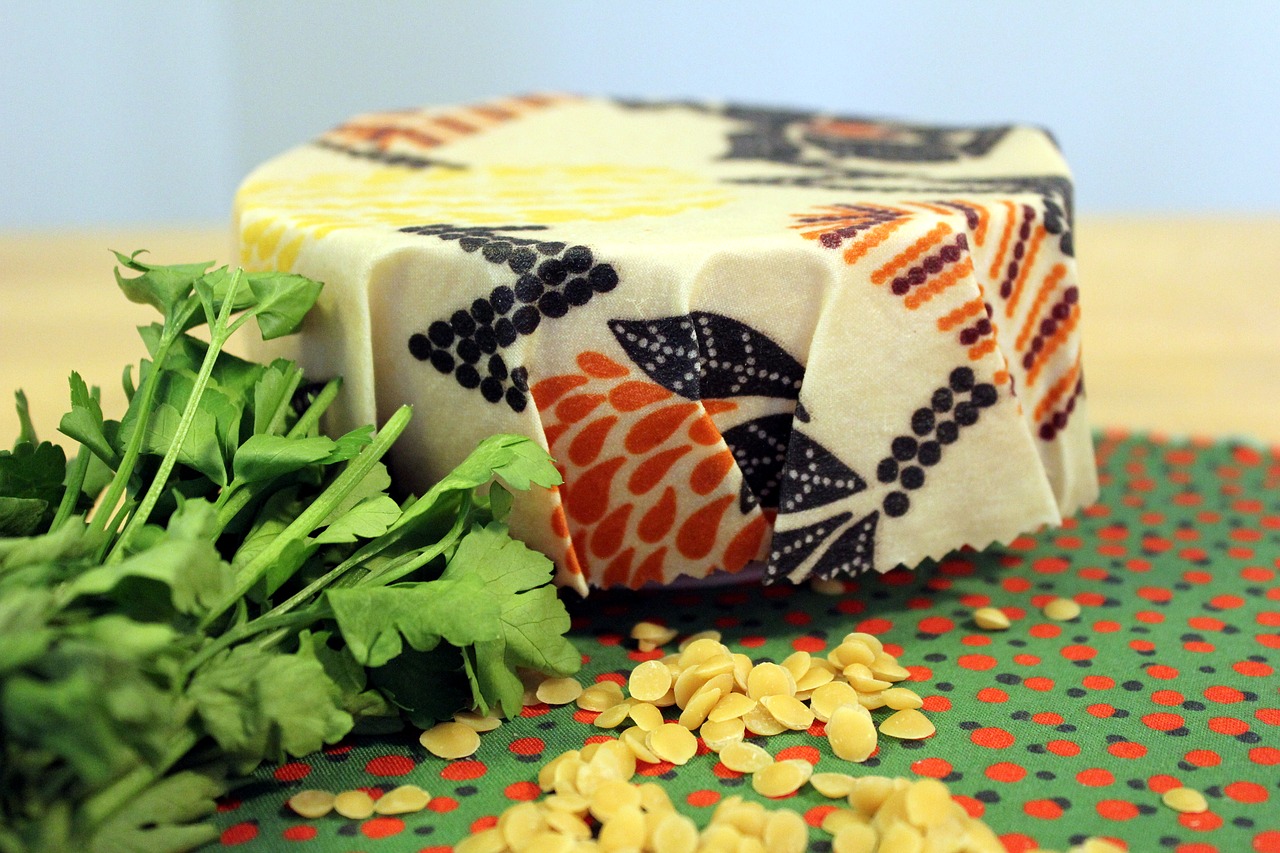
5. Stainless Steel Cookware
While some people may shy away from stainless steel due to concerns about sticking, this material is highly durable and offers a wealth of benefits for sustainable cooking.
Why It’s Sustainable:
Stainless steel is recyclable and won’t leach harmful substances into your food. With proper care, it can last a lifetime, reducing the need for frequent replacements.
Expert Insight:
“Stainless steel is a non-reactive surface, which means it won’t affect the flavours of your food,” says Chef Paul Richards, a professional chef known for his focus on sustainable cooking practices. “Investing in high-quality stainless steel cookware is one of the best decisions you can make for your kitchen.”
Personal Experience:
After a few frustrating encounters with non-stick cookware, I transitioned to stainless steel and quickly learned the technique of managing heat. Now, my seared meats and roasted vegetables turn out perfectly, without any harmful chemicals involved.
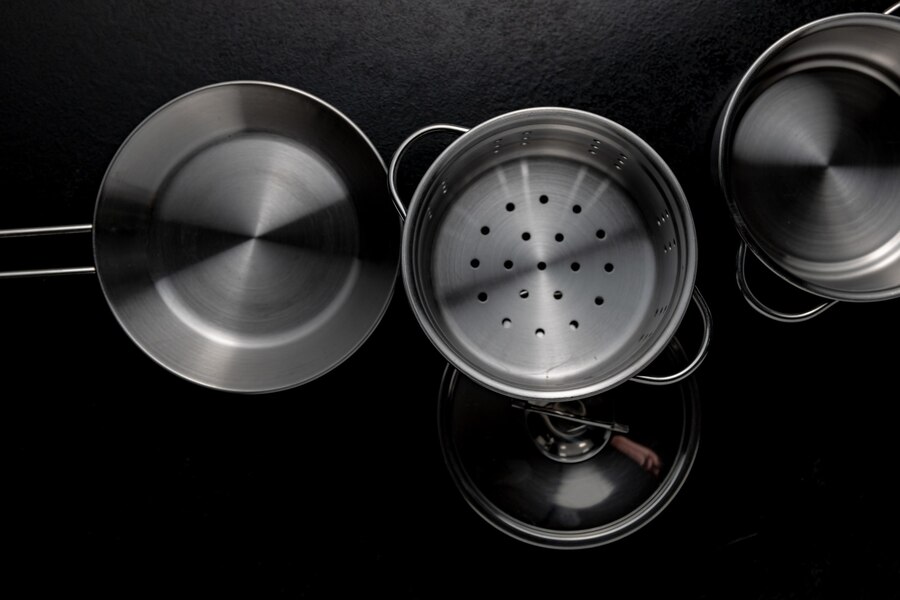
6. Natural Fibre Dish Towels
We often overlook dish towels, but most of us use synthetic options like microfiber that can shed microplastics into the environment.
Why It’s Sustainable:
Natural fibre towels, such as those made from cotton or linen, are biodegradable and reduce plastic waste. They are also highly absorbent and durable.
Expert Insights:
Environmental scientist Dr Sarah Thompson emphasises the importance of switching to natural fibres: “Microfibers are a significant source of microplastic pollution in our waterways. Choosing natural materials helps mitigate this issue.”
Personal Note:
Since making the switch, I’ve noticed that my cotton dish towels are more effective at drying dishes and are far easier to clean. They also add a touch of elegance to my kitchen!
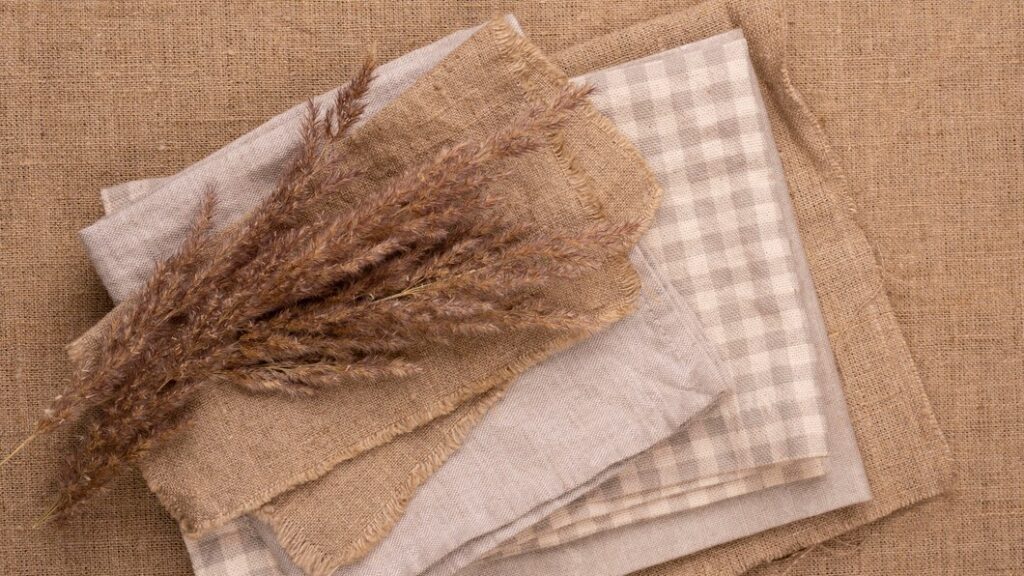
7. Recycled Plastic Utensils
While single-use plastic utensils are harmful, some companies are producing utensils made from recycled plastics. These offer a responsible choice for those looking to reduce their plastic use.
Why It’s Sustainable:
Recycled plastic utensils help divert waste from landfills while providing a functional tool for cooking. Many brands have begun producing stylish, durable utensils that can stand up to the heat of cooking without melting.
Real-World Example:
Eco-Products, a leader in sustainable food service products, creates utensils made from 100% recycled plastic. Their products are compostable and environmentally friendly.
8. Wooden Cutting Boards
Cutting boards made from sustainably sourced wood are not only aesthetically pleasing but also functional.
Why It’s Sustainable:
Wooden cutting boards can last for years and can be resurfaced multiple times, reducing the need for replacements. Additionally, when they reach the end of their life, they are biodegradable.
Personal Experience:
I remember receiving a handmade wooden cutting board as a gift. It has become my favourite kitchen tool, and with proper care, it has aged beautifully. I often receive compliments on it, and it sparks conversations about sustainable choices in cooking.
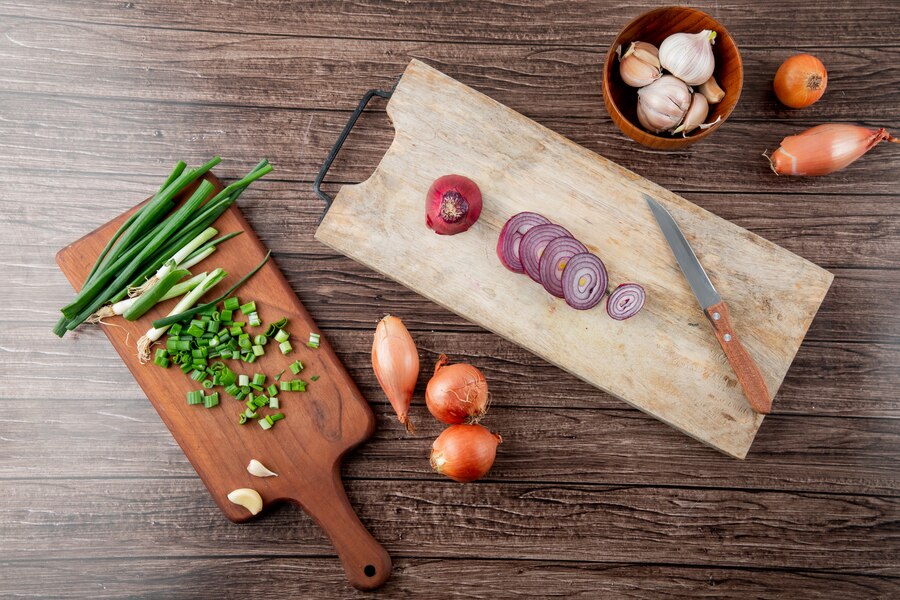
9. Silicone Baking Mats
If you enjoy baking, you know how often parchment paper gets used and thrown away. Silicone baking mats are a great, eco-friendly alternative.
Learn more: 10 Eco-Friendly Appliances You Need in Your Home
Why It’s Sustainable
These mats are reusable and can withstand high temperatures, making them perfect for baking. By using silicone mats, I’ve reduced my reliance on disposable paper products and have found that my baked goods cook evenly.
Expert Insight:
According to Bon Appétit, silicone mats can last for thousands of uses, making them a cost-effective and eco-friendly choice for bakers.
Personal Story:
After investing in a couple of silicone mats, I noticed that my cookies no longer stuck, and cleanup was a breeze. They’ve quickly become a staple in my baking routine.
10. Recycled Glass Beverage Containers
When it comes to storing drinks, especially homemade juices or smoothies, glass containers made from recycled materials are a fabulous choice.
Why It’s Sustainable:
Recycled glass reduces energy consumption during production and cuts down on landfill waste. These containers are reusable and can often be found in stylish designs.
Personal Note:
After switching to recycled glass containers, I appreciate how they keep my beverages fresh without the risk of chemical leaching. Plus, they look fantastic on my kitchen shelf!
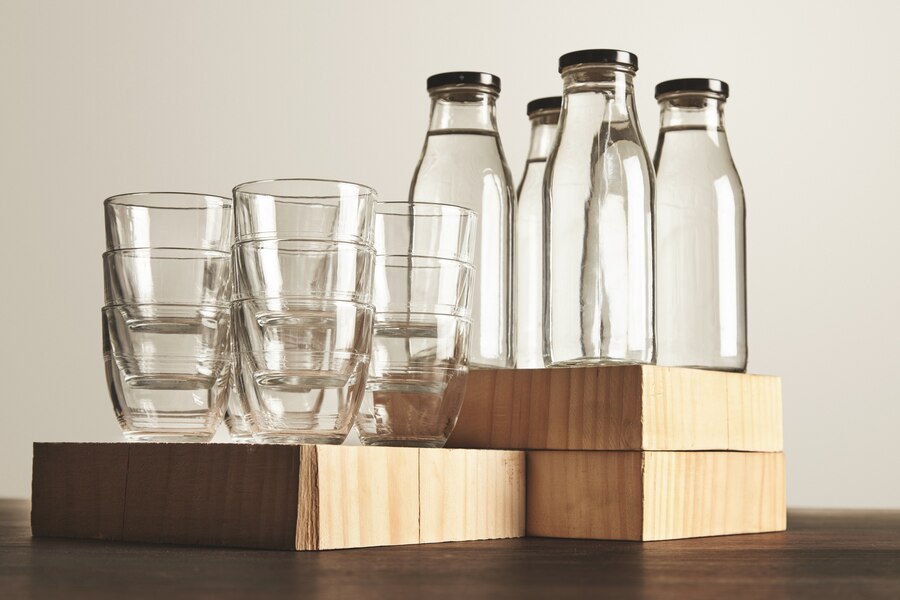
Conclusion
Making the transition to sustainable cooking utensils doesn’t have to be daunting. By incorporating just a few of these options into your kitchen, you can significantly reduce your environmental footprint and promote a healthier lifestyle. Each choice we make has an impact, and together, these small changes can lead to a more sustainable future.
Whether it’s opting for carbon steel cookware, embracing bamboo utensils, or utilising glass storage containers, every effort counts. I encourage you to reflect on your own kitchen practices and consider the impact of the utensils you use every day. Together, we can create kitchens that are not only functional but also friendly to our planet.
As I look back on my journey to a more sustainable kitchen, I realise that these choices have not only enhanced my cooking experience but have also given me peace of mind knowing that I’m doing my part for the environment. Let’s embark on this journey together—one sustainable utensil at a time.







